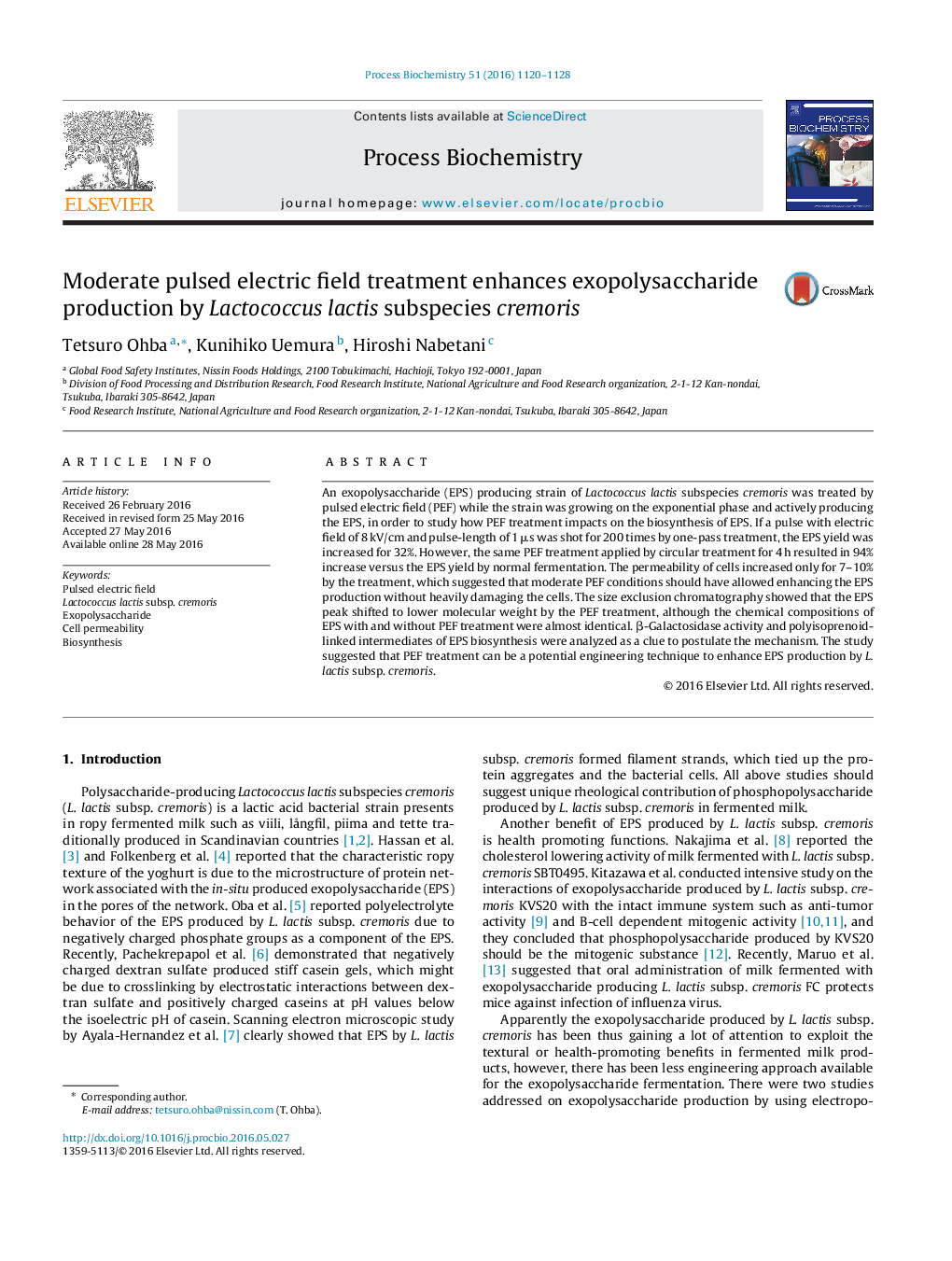| Article ID | Journal | Published Year | Pages | File Type |
|---|---|---|---|---|
| 4755216 | Process Biochemistry | 2016 | 9 Pages |
â¢Moderate pulsed electric field treatment enhances exopolysaccharide production.â¢The treatment should be applied during the mid and latter exponential phase.â¢Conditions of the treatment should result in only limited electroporation of cells.â¢The composition of exopolysaccharide is not influenced by the treatment.â¢The molecular weight of exopolysaccharide is reduced by the treatment.
An exopolysaccharide (EPS) producing strain of Lactococcus lactis subspecies cremoris was treated by pulsed electric field (PEF) while the strain was growing on the exponential phase and actively producing the EPS, in order to study how PEF treatment impacts on the biosynthesis of EPS. If a pulse with electric field of 8 kV/cm and pulse-length of 1 μs was shot for 200 times by one-pass treatment, the EPS yield was increased for 32%. However, the same PEF treatment applied by circular treatment for 4 h resulted in 94% increase versus the EPS yield by normal fermentation. The permeability of cells increased only for 7-10% by the treatment, which suggested that moderate PEF conditions should have allowed enhancing the EPS production without heavily damaging the cells. The size exclusion chromatography showed that the EPS peak shifted to lower molecular weight by the PEF treatment, although the chemical compositions of EPS with and without PEF treatment were almost identical. β-Galactosidase activity and polyisoprenoid-linked intermediates of EPS biosynthesis were analyzed as a clue to postulate the mechanism. The study suggested that PEF treatment can be a potential engineering technique to enhance EPS production by L. lactis subsp. cremoris.
Graphical abstractDownload high-res image (175KB)Download full-size image
